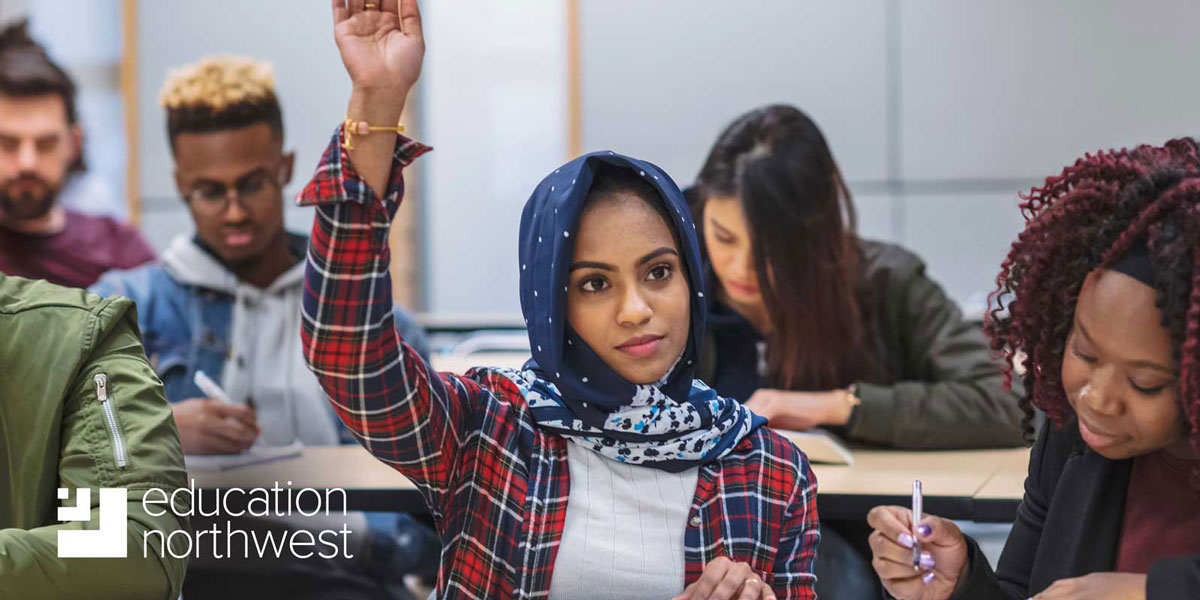Collaborating to Solve Basic Needs Insecurity on College Campuses

Too many college students lack access to basic needs, including food, housing, health care, child care, technology and internet, and transportation.
In a recent survey from The Hope Center for College, Community, and Justice, 39 percent of college students said they had experienced food insecurity in the previous month. The same survey found that 46 percent of college students had experienced housing insecurity and 17 percent had experienced homelessness in the previous year.
To address this challenge, ECMC Foundation launched the Basic Needs Initiative in fall 2019. Through the three-year initiative, a group of seven grantees comprised of institutions, community college associations, and nonprofit partners will receive funding and support to build systemic, sustainable solutions for meeting college students’ basic needs.
Education Northwest supports the Basic Needs Initiative in two ways:
- Our external evaluation will examine how organizations and institutions support implementation of basic needs services, variation in basic needs services program models, how they serve different student populations, and the outcomes they achieve. Our first brief, Early Findings From ECMC Foundation’s Basic Needs Initiative, showcases learnings from the first year.
- We facilitate a learning community so that grantees can share successes and challenges and learn about research and promising practices. To date, the group has discussed holistic student supports, federal policies and funding to support basic needs initiatives, and equitable strategies to address student needs. Future meetings will focus on assessing students’ needs, implementing trauma-informed practices, and reducing stigma around services.
Here are some key takeaways from our work so far:
Institutions implemented creative and necessary approaches to deliver basic needs services in a remote environment
A few months after the Basic Needs Initiative launched, colleges across the nation shifted operations in response to the COVID-19 pandemic. The move to virtual learning—and, in turn, virtual campus services—required that institutions find creative and necessary ways to make sure students could access food, housing, and other supports.
Responding to this challenge, grantees developed or supported new partnerships to keep services operational and useful as students have stayed off campus or quarantined on campus. For example, campuses within the Michigan Community College Association collaborated with local churches to create mobile food pantries. In Washington state, the United Way of King County partnered with DoorDash to deliver free groceries to students. These innovative collaborations have been key to continuing services during the pandemic.
The success of basic needs services depends upon partnerships—across institutions, with community organizations, and even within institutions
Diverse partnerships benefit students, institutions, and individual staff members who implement basic needs services. These connections build community, allow individuals and institutions to share ideas and build capacity, and support and motivate the people engaged in the work of supporting students.
A representative of Auburn University’s Hunger Solutions Institute explained how building diverse networks has enhanced basic needs services in Alabama:
“I would scream to the hilltops that getting the colleges together just to talk to each other resulted in tremendous traction and tremendous steps forward … They were able to engage on the statewide level and find other people who were doing the same thing, start bouncing ideas off of each other, share what they’re doing, know that they’re not alone.”
Systemized solutions help link students with existing supports
Many external organizations and government agencies have expertise and resources that colleges and universities can leverage to help students. Systemizing these partnerships makes it easier for students to access existing resources and programs. For example, John Burton Advocates for Youth helps connect California postsecondary institutions with local and state housing authorities to streamline housing assistance and reduce the number of students experiencing homelessness.
Colleges and universities increasingly recognize that systemizing supports effectively and efficiently breaks down systemic barriers. The Michigan Community College Association said:
“Colleges are really invested, I think more so now than they have ever been, because they can practically see the need for a systemized way to support students, and that’s what [our work] is about—systemizing supports.”
Next step: Collecting data to understand what works for students
Over the next two years, Education Northwest will collect survey data from grantees to describe the basic needs services at partner institutions and explore how grantees and institutions build capacity to assess and meet students’ basic needs. We will also collect student-level data to explore relationships between basic needs services and student outcomes. Our analysis will help determine whether certain services (for example, access to food pantries, housing assistance, or a benefits hub) correlate more closely with improved outcomes, as well as which student groups are more or less likely to access services.
As we continue to collaborate with ECMC Foundation and its grantees, we look forward to sharing our learnings so that other institutions and partners can better support college students.



